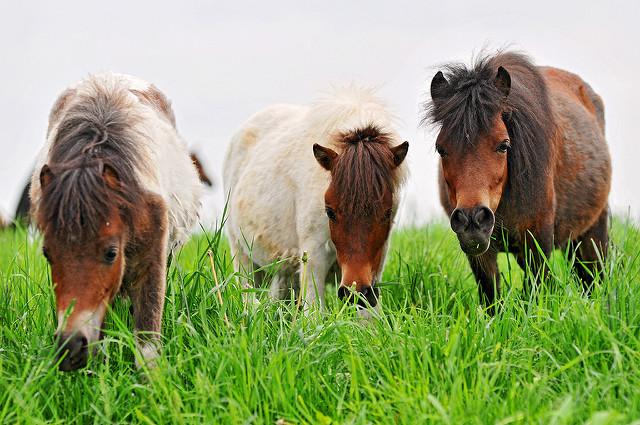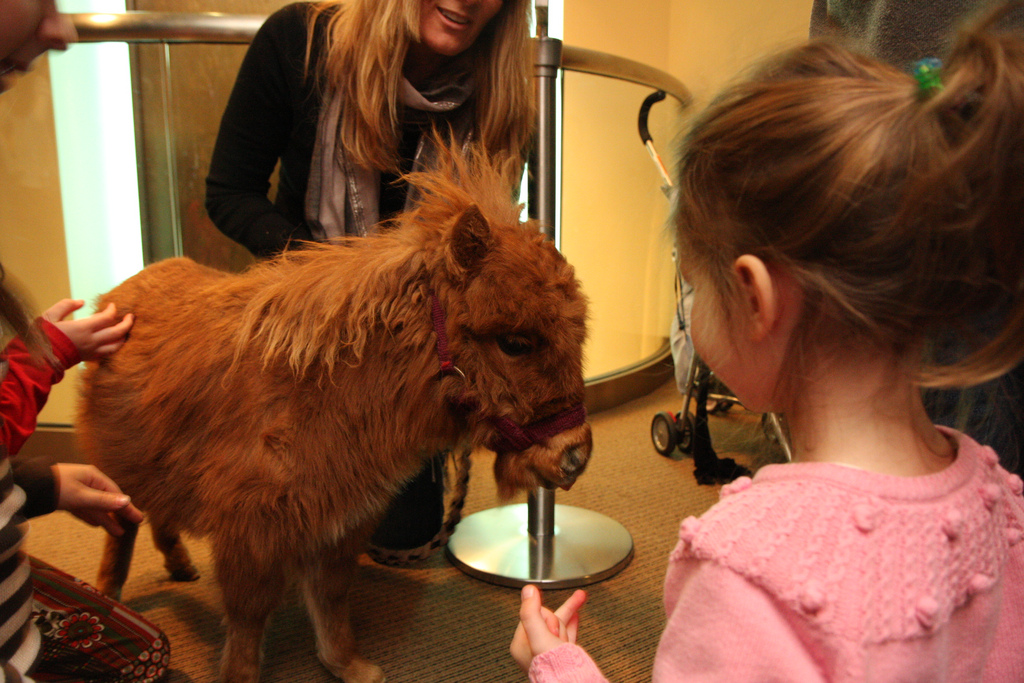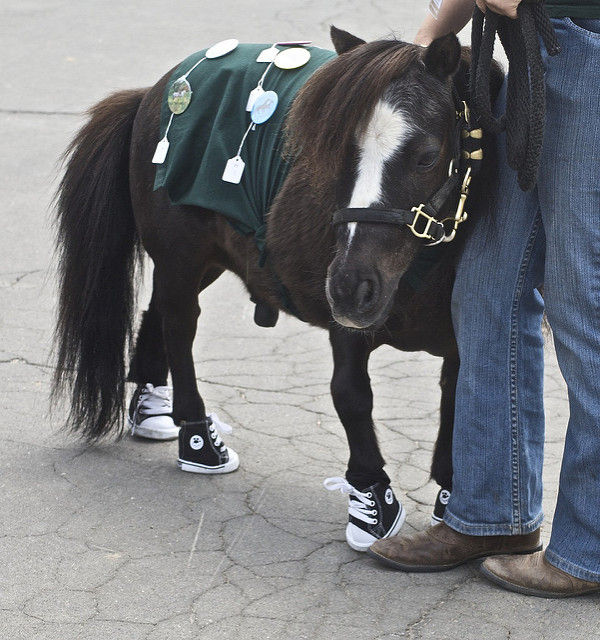Miniature Horses as Therapy Animals
Most people are familiar with dogs being used as therapy animals, but more recently, miniature horses are also being trained for this purpose. Research shows that these tiny equines can be extremely effective in therapy for helping hospital patients, the elderly, people with disabilities and those recovering from illnesses or injuries.
Physical Characteristics of Miniature Horses
Miniature horses, as the name implies, are very small horses that were originally bred in Europe in the 17th century. They are even smaller than ponies. In fact, to be categorized as a miniature, an animal must be no more than 34 inches tall. They typically weight between 150 and 250 pounds, compared to the average normal horse, which weighs anywhere from 800 to 2000 pounds. Apart from their size, they have many of the characteristics of other horses. While they can be ridden by small children, these animals are typically used for companionship rather than riding.

Tiny Horse, Big Personality
Miniature horses are affectionate, highly intelligent and easy to train. Their diminutive size makes them more practical and less intimidating for many uses. They can, like dogs, be brought into hospitals and nursing homes. Miniature horses are also easier and cheaper to maintain. They require less space and eat far less than a normal horse.
Use as Therapy Animals
Miniature horses are now used in a variety of environments. One of the largest providers of miniature therapy horses is Gentle Carousel, whose horses have helped more than 45,000 people in hospitals, hospices and assisted living facilities. This is volunteer run organization that has helped survivors of the Sandy Hook shooting as well as many natural disasters. Gentle Carousel is one of the organizations that we looked up to when founding Rocking C Ranch.

Miniature horses can also provide valuable assistance to the blind. The Guide Horse Foundation specializes in training miniature horses for this purpose. These animals are small enough to live indoors with people, while also being helpful for guiding visually impaired people outdoors. Miniature horses, like guide dogs, help to give blind people more mobility. They do, however, have some advantages over dogs. They have a lifespan of 25 to 35 years, which is considerably longer than dogs. This makes it possible for miniature horses to be long-term companions for the blind. They’re also a good alternative for people who are allergic to dogs or who simply prefer horses.
Miniature horses have a calming effect on people of all ages. They’ve been used to comfort sick children as well as elderly nursing home residents who may not get many visitors. They can also help to calm ordinary people in stressful situations. This was proven when Cincinnati-Northern Kentucky International Airport began using miniature horses to reduce tension at security lines.
Therapy Horses of Rocking C Ranch
At Rocking C Ranch, we have a number of horses that have been certified along with handlers to aid in Animal-Assisted Therapy. Most of our horse and handler duos are certified through Pet Partners, a national nonprofit for registering handlers of a number of species of pets used in therapy. Once horses and handlers have completed training and certification through Pet Partners, we send them out to hospitals and nursing homes all over Texas to deliver smiles to the patients and residents of these facilities. It’s amazing how interacting with a miniature horse can bring so much joy and hope to people of all ages.

In addition to our visitation programming, we are also piloting a program to bring disabled children out to the ranch for therapy days. Once this program launches, children from local communities may come to the ranch, interact with horses and even ride the horses with the help of a couple volunteers. The idea is to offer a place where they can interact with the horses on a regular basis, while giving their caretakers a place of community.
How You Can Get Involved
We work with a number of individual volunteers, and more recently have started working with local businesses looking for a long-term volunteer opportunity for their employees. We do require that volunteers who wish to accompany animals on therapy visits complete their certification through Pet Partners and work extensively with a few of our horses to learn their different temperaments before actually going out on therapy visits. Of course, some people prefer to volunteer behind the scenes, and there’s no certification needed for all of the work that must be done around the ranch. We’ll happily take volunteers willing to clean out stalls, distribute hay and feed, and groom our lovable little horses.
People are just starting to appreciate the value of miniature horses as therapy animals. While miniature horses will probably never replace dogs in popularity, they are a viable alternative in many situations. It’s very likely that we’ll be hearing more and more about miniature horses providing comfort and companionship to the people who most need it.
